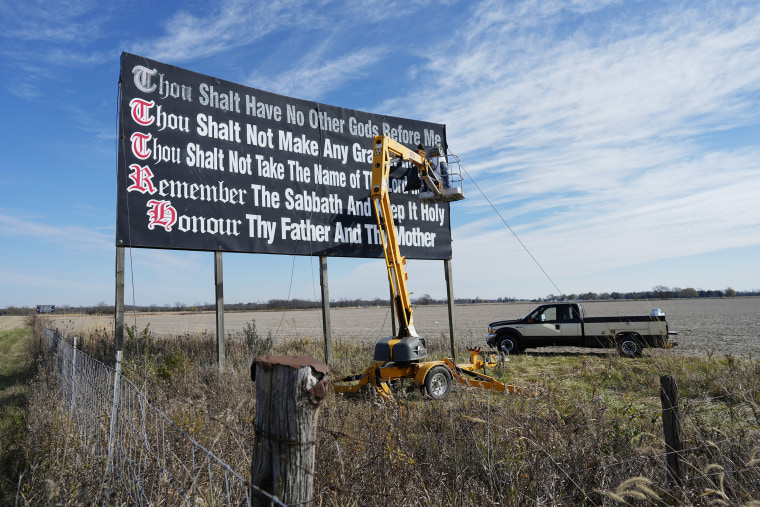
The Ten Commandments Controversy in Louisiana: A Battle of Laws and Beliefs
Louisiana has recently become the first state to require that the Ten Commandments be displayed in every public school classroom, making it a subject of controversy and debate.
According to a report by CNN, Louisiana State Representative Lauren Ventrella is one of the co-authors of House Bill 71. This bill mandates that a poster-size display of the Ten Commandments be in every classroom at schools that receive state funding, from kindergarten through the university level.
However, this law goes against precedent set by the Supreme Court in Stone v. Graham (1980), which struck down a Kentucky law requiring the posting of the Ten Commandments in every public school classroom. The ruling stated that such displays violated the Establishment Clause of the First Amendment.
Despite this, Gov. Jeff Landry expressed his intention to defy this precedent and has even stated that he cannot wait to be sued over the issue.
The New York Times published an opinion piece by a legal scholar who argued against such displays in classrooms, stating that they have no impact on students' lives and serve no secular purpose. The scholar also noted that efforts to infuse religion into government entities, including public schools, have increased as the Supreme Court has sided with those seeking fewer restrictions on religion.
The Washington Post reported that lawyers from various civil liberties organizations plan to file a lawsuit against the new law next week. Some experts are unsure about how courts will view Louisiana's law due to uncharted legal territory following recent Supreme Court rulings.
Despite these controversies, supporters of the bill argue that displaying the Ten Commandments in classrooms serves a secular purpose and has historical significance. They also point out that schools have until January 1, 2025, to comply with the law and that state funds will not be used for implementation.
The debate over this issue highlights the ongoing tension between religious freedom and the separation of church and state in American public life.



